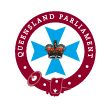-
Work of committees
- Upcoming Committee Business
- About Committees
- Training Seminar - Committees@Work
- Committees (10)
- Committees Glossary
- Estimates Hearings
- Inquiries
- Live and Archived Broadcasts
- Publications
- Guidelines (4)
- Subscribe
- Former Committees (67)
- 30 Year Release
- Past Alert Digest and Legislation Alert Indexes
- Ten Year Anniversary
What is a Parliamentary Committee
The Legislative Assembly has established the following parliamentary committees of the 58th Parliament to assist the Queensland Parliament to operate more effectively:
- Committee of the Legislative Assembly
- Education, Arts and Communities Committee
- Ethics Committee
- Governance, Energy and Finance Committee
- Health, Environment and Innovation Committee
- Justice, Integrity and Community Safety Committee
- Local Government, Small Business and Customer Service Committee
- Parliamentary Crime and Corruption Committee
- Primary Industries and Resources Committee
- State Development, Infrastructure and Works Committee
How Committees work
Portfolio committees consist of government and non-government Members of Parliament. The Parliament has established rules (‘standing orders’) which govern how they operate.
Committees work across party lines to inquire into matters which may be referred to them by the House or initiated under their own powers. They aim to inform themselves by hearing from the general public and subject matter experts in as public a manner as is practicable, and by undertaking their own research.
In reporting back to the Legislative Assembly, Committees may make recommendations. Sometimes, when the committee cannot agree on what actions it should take, or what course of action it should recommend, the Chair will use their casting vote to decide the matter. Any committee member may make a statement of reservation, or write a dissenting report, which is attached to the main committee report.
Where a committee recommends the government or a Minister should take a particular action, or not take a particular action, the responsible Minister is required to provide a response to the Legislative Assembly within 3 months. In this response they must outline which recommendations will be adopted and the way and time within which they will be carried out, along with any recommendations not to be adopted, and the reasons for not adopting them.
Why Committees are important
A strong, active committee system is an asset in any functioning parliamentary democracy. A comprehensive system of parliamentary committees provides greater accountability by making the policy and administrative functions of Government more open and accountable. Committees provide a forum for inquiry into matters of public importance and give Members the opportunity to enhance their knowledge of such issues.
In short, they allow the Parliament to ensure that the right decisions are being made at the right time and for the right reasons. At the same time they effectively enhance the democratic process by taking the Parliament to the people and giving them a role in its operations.
Since the re-invigoration of the committee system in the Queensland Parliament during the late 1980s and 1990s, including the implementation of the portfolio committee system in 2012, committees have made a positive and beneficial impact on the Parliament and the process of Government.
The difference between portfolio committees and select committees
Select committees are established by a resolution of the House to do particular tasks. They are often time limited, and end when their tasks are complete.
Portfolio committees are Standing Committees, and it is their job to provide oversight of all areas of government activity, including reviewing all proposed legislation relating to their portfolio areas. They ‘stand’ for the term of the Parliament and cease to exist with the dissolution of Parliament prior to an election. They are then reestablished at the start of the new session of Parliament, though the portfolio mixes might change.
